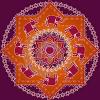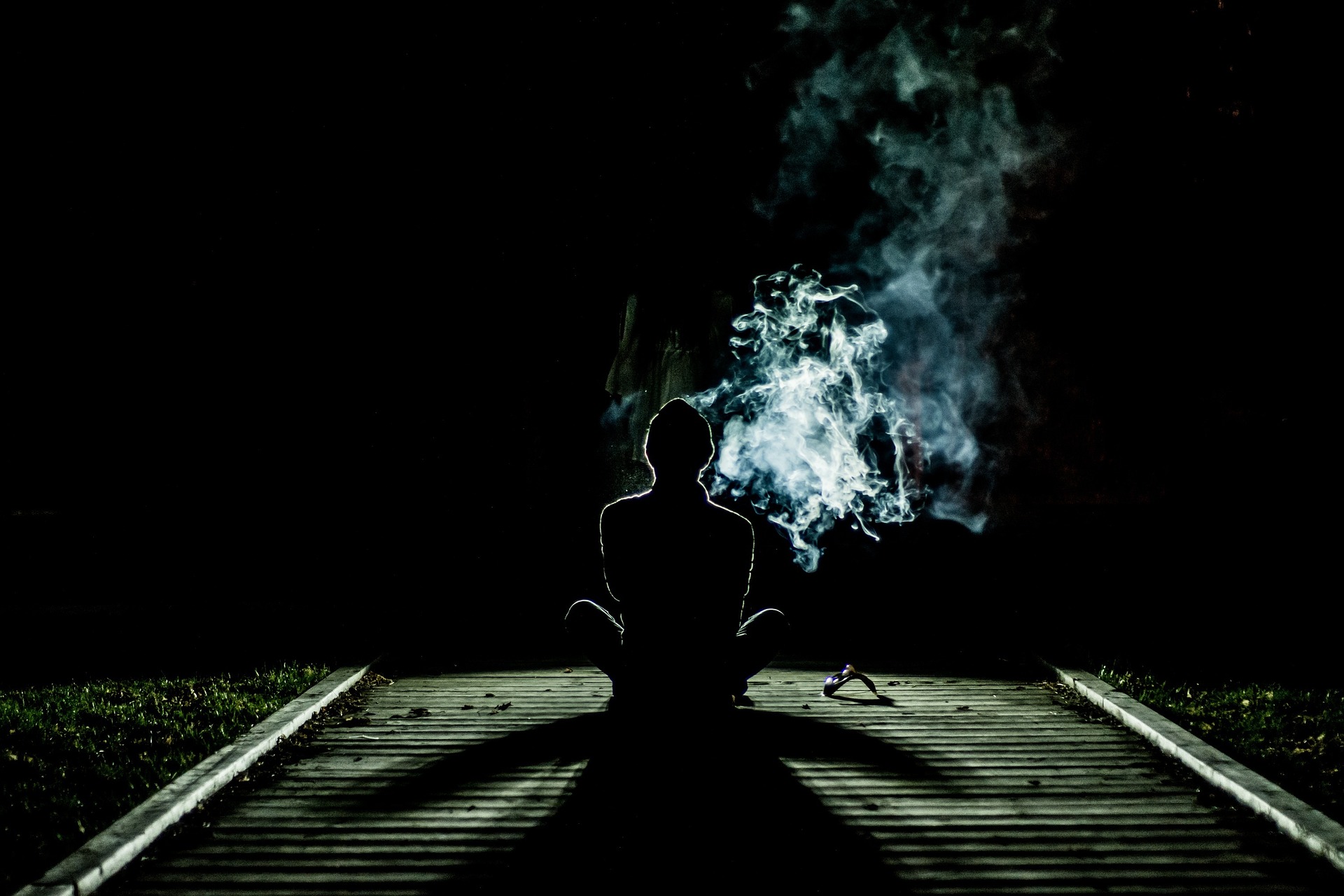 Submitted by Mantra on
Submitted by Mantra on

Duality is ever present. Which means, there’s a dark side to everything. This is the reality that we as humans face on this planet. When you look at the spiritual forces of creation and destruction, it’s all part of the human experience—both can have a profound purpose. But how, then, can one discern between spirituality as a force of good versus the dark side of spirituality as a detriment?
That is, how do you know if you’re on “the path”? Using spirituality to avoid the reality of life’s present moment and circumstance is a deviation from the path. A spiritual path is not always easy, in fact, it can be the greatest challenge of one’s lifetime. But with that challenge comes great reward. Along the way, it’s easy to get caught up in distortions of what things mean. That is, it’s exceedingly easy to twist the meaning of certain things in such a way that serves the present moment challenge of the spiritual path in order to do “less work.” But these distortions of thinking, which in turn inform behavior, are not devices that will actually yield less work—they are actually obstacles that will delay progress on the spiritual path.
While all of these distortions have within them deeper layers of self-sabotage and emotion, they appear as part of the spiritual path, or sometimes, even, the path itself. They are, however, just ways to fool the self into thinking that everything in life will be okay. They are tricksters in a vast world that requires discernment. Here are some common ways that these tricksters show up:
Spiritual Egoism
You’ve seen it at your yoga studio. You’ve experienced it with a spiritual friend. Or you may have even seen this with a spiritual teacher. Spiritual egoism happens when one person, whether they are aware of it or not, behaves in a way that is superior to others because they consider themselves “spiritual”. That is, they are spiritual and you are not. This type of distortion lends itself to all kinds of unethical and egotistical behavior.
It appears like this: “I’m better than that other person because I’m spiritual, and they are not.” Or, “I don’t need to listen to that person because I’ve spend more time studying spirituality than they have, therefore, I know more than they do about spirituality.” Or, “Everyone I meet should listen to me and agree with what I say because I’m spiritual.”
Spiritual Egoism
You’ve seen it at your yoga studio. You’ve experienced it with a spiritual friend. Or you may have even seen this with a spiritual teacher. Spiritual egoism happens when one person, whether they are aware of it or not, behaves in a way that is superior to others because they consider themselves “spiritual”. That is, they are spiritual and you are not. This type of distortion lends itself to all kinds of unethical and egotistical behavior.
It appears like this: “I’m better than that other person because I’m spiritual, and they are not.” Or, “I don’t need to listen to that person because I’ve spend more time studying spirituality than they have, therefore, I know more than they do about spirituality.” Or, “Everyone I meet should listen to me and agree with what I say because I’m spiritual.”
This one is also sometimes called “spiritual bypass.” Essentially it means using spirituality to escape the reality of life. Put another way, it’s using spirituality as an excuse to not be fully present, fully aware, and responsible for your life and its circumstances. This is a distortion of the essence of spirituality, and a disempowering perception and can derail appropriate action at the appropriate times. It rationalizes itself like this: “If I’m spiritual enough, my life will straighten itself out.” Or, “I’m so out of touch with the reality of my life circumstances, I’m paralyzed to take any action to improve.”
Most who practice this form of distortion are not even aware of the latter example above. This bypass is really just an excuse to avoid change, or to face reality. It’s also a convenient excuse not to work through or work on emotional issues that one may be facing. The result of escapism is nothing more than delays in progress on the path.
Out-of-Body Spiritualism
This distortion has to do with not being fully present in the body. It often occurs with those who have experienced some kind of trauma at some point in life. Rather than be with the pain of these experiences, it’s easier to vacate energetically and go “out of body.” This occurs with drug use and can also, perhaps surprisingly, happen in meditation. In another form, it can occur with those who are able to channel energies from different planes of reality. Where this goes awry is when it’s inappropriately used as a tool to takes the place of present moment awareness.
It shows up like this: “I don’t need to be fully present to my life and its circumstances, I can vacate energetically and everything will work itself out.” Or, “If I just channel this being from the planet Nibiru, then my life will be okay.”
But this distortion only leads to disempowerment. It’s great to be able to work with energy, but not when it becomes an excuse to vacate life.
Spiritual Inaction
This is a justified distortion of the concept of non-attachment. Non-attachment is an understanding, first and foremost, that the challenges that occur on the spiritual path are not a reflection of your spiritual or emotional worth. Non-attachment is also a state of present moment awareness that is free from judgment, and free from the emotional entanglement that is at the root of trying to control outcomes of events in life. Spiritual inaction can appear in various forms that include: praying but not taking practical action; setting intentions but not taking practical action; or creating a vision board and doing nothing toward the achievement of the goals that appear on that board. It sounds something like this: “If I just pray, everything will be okay.” Or, “If I just set intentions, then I don’t have to do anything else because the universe will just deliver.”
While it’s true that prayer can have a profound impact on circumstances, and that miracles, do happen, it isn’t the only component of reality, it’s just one part. And relying only on prayer can be disempowering because it takes you out of the position of co-creatorship.
Spiritualization of Drug Use
This is a popular one lately, due to the increasing trend of ayahuasca use. In the 1960’s we saw this with LSD and MDMA. Marijuana has been a cultural mainstay in this way over the last 50 years. But as we’ve learned from the great Ram Dass, drugs are not the path to a spiritual life. It’s easy to believe that drugs can put a person on the spiritual path because they do induce an expansion of one’s energetic field, which, in turn, can provide “insights” into the nature of reality. The experience of this temporary expansion feels extraordinary when compared with daily life not attuned to subtle realities. It also gives the illusion that sustaining an expanded state is a healthy spiritual path.
But expansion is only one part of the spiritual experience. Contraction is the other, and it, too, contains profound seeds of wisdom therein. Also, these substances are highly toxic biologically. Spiritual learning and the ecstasy that can come from a balanced, emotionally healthy, spiritually attuned perception, on the other hand, can become permanent with practice. So, how do you avoid these distortions? First, remember that these tools are not in and of themselves inherently “bad.” Inappropriate use and lack of understanding, however, is what creates distortion. Always be anchored in the honest truth of who you are, and where you are on your spiritual path in the current moment.
It’s also imperative to remain actively engaged in the present moment of life and its circumstances. Paramount to this is taking ownership for your choices and your life’s circumstances. Co-creation cannot occur without you; meaning that you are at the helm of your choices in life. You meet the divine on your path with every choice you make. And, while one could say that everything has a spiritual purpose, it’s true—these distortions have the purpose of creating an experience from which one can learn. But staying in these distortions is what it means to stay “in the dark.”
The spiritual path is one that includes a healthy psychoemotional balance, an honest look at challenges and shortcomings, and a path that consciously chooses to infuse the divine in all of life. It’s a lifelong task to face oneself, and it’s not for the faint of heart. Sometimes along that path, it’s appropriate to set intentions and move into non-attachment. Sometimes it’s more appropriate to pray and have faith that the universe will meet you where you are. And sometimes it’s most appropriate to take action and let the results of that action impact the world. Learning how to discern what to do and when, well, that’s what the spiritual path is for.
Kelly Lydick
https://blog.sivanaspirit.com/sp-gn-dark-side-of-spiritualism/